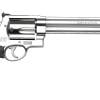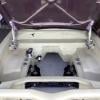Lead fill holes in panels
#1
 _lxsl308_
_lxsl308_
Posted 25 March 2017 - 08:27 PM
#2

Posted 25 March 2017 - 09:52 PM
Lead wiping is an old panel trick
Used by many manufacturers in production as well as old school guys not wanting to use bog
https://www.youtube....h?v=LVEKxsdA07w
#3

Posted 25 March 2017 - 11:31 PM
#4

Posted 26 March 2017 - 06:46 AM
is it legal?
#5

Posted 26 March 2017 - 10:12 AM
70/30 solder, or 'wiping metal' as plumbers called it only contains 30% lead, the other 70% is tin. The higher the tin content the lower the melting point.
#6

Posted 26 March 2017 - 03:53 PM
Solder will fill small holes no problems. You can indent the panel a little to get more solder over the hole.
#7
 _lxsl308_
_lxsl308_
Posted 26 March 2017 - 05:53 PM
#8

Posted 26 March 2017 - 06:21 PM
Solder is good for filling but really needs mechanical assistance for strength.
If it is used for joining without mechanical help it may vibrate itself to be brittle enough to seperate.
In plumbing the sleeve fit of pipes gives it mechanical strength.
But it isnt legal for plumbing anymore.
In electrical a cable is joined mechanically by twisting to give the joint strength and the solder is used to hold it together.
Bakers Soldering fluid is corrosive and will definitely need to be cleaned off well.
If you have just soldered the holes I expect that they will probably fail eventually in much the same way as bogging holes will.
It will take longer. You might get lucky and not have it happen.
If you
#9
 _lxsl308_
_lxsl308_
Posted 26 March 2017 - 06:45 PM
#10

Posted 26 March 2017 - 07:56 PM
As long as there is no mechanical force trying to pull the repair away from the parent metal then the lead wipe will far outlast any plastic fillers.
Agree with previously posted comments, thoroughly wash down the work area with clean water to remove any flux residue and blow dry any joints and crevices with compressed air.
Edited by S pack, 26 March 2017 - 07:57 PM.
#11

Posted 26 March 2017 - 10:11 PM
#12

Posted 27 March 2017 - 09:03 AM
#13

Posted 27 March 2017 - 11:27 AM
Tin the metal panelbeaters lead is different in a couple of ways, melting point and it is much more sticky. If done properly lead will last a very long time. As others have said just make sure to neutralise the flux.
Sorry Dave I don't get what you mean by panel beaters lead is more sticky and melting point?
A stick of 70/30 or 60/40 or 50/50 etc (tin/lead) solder is the same regardless of whether a panel beater, a plumber, a sheetmetal worker or anybody else is using it.
How well any solder will stick depends on how clean the substrate is (tinning the work piece is essential) and the melting point of solder is determined by the tin content. More tin less lead = lower melting point and vise versa.
Edited by S pack, 27 March 2017 - 11:28 AM.
#14

Posted 27 March 2017 - 01:28 PM
S Pack
There are many different types of solder.
Electrical solder is 60/40 for instance.
The percentages of tin and lead vary a few things including melting point.
One of those would be the workability or mouldability of the solder.
Whether or not you can work it.
You will probably find that the "lead" that panel beaters use is a lot different to the solder that electricians for instance might use.
#15

Posted 27 March 2017 - 10:18 PM
S Pack
There are many different types of solder.
Electrical solder is 60/40 for instance.
The percentages of tin and lead vary a few things including melting point.
One of those would be the workability or mouldability of the solder.
Whether or not you can work it.
You will probably find that the "lead" that panel beaters use is a lot different to the solder that electricians for instance might use.
Yes Rob, I am aware there are many different types of solder.
We used to use 60/40 and 50/50 for soldering all our gutter, downpipe and sheet metal flashing joints in the days before zincalume and silicone sealer and we used 70/30 for wiping lead pipe joints.
All solders have a plastic state in which you can form and shape them but it is a narrow temperature band that will vary between solders of differing tin/lead ratios.
Electricians use rosin core solder so not quite the same thing as what a panel beater or plumber or sheet metal worker is will use.
Cheers
Dave.
#16

Posted 27 March 2017 - 10:57 PM
#17

Posted 27 March 2017 - 11:48 PM
I can't recall the ratios but from experience in using it and purchasing it, it is a specific ratio and is known as panelbeaters lead. It sticks much better on vertical surfaces, has less sag, different melting point and is more workable. Yes prep is the key and yes all leads will stick if prep is done properly but specific to the task.
I suspect this will be a case of the same animal known by different industry specific names.
Edited by S pack, 27 March 2017 - 11:49 PM.
#18

Posted 28 March 2017 - 08:53 AM
1 user(s) are reading this topic
0 members, 1 guests, 0 anonymous users








 View Garage
View Garage










